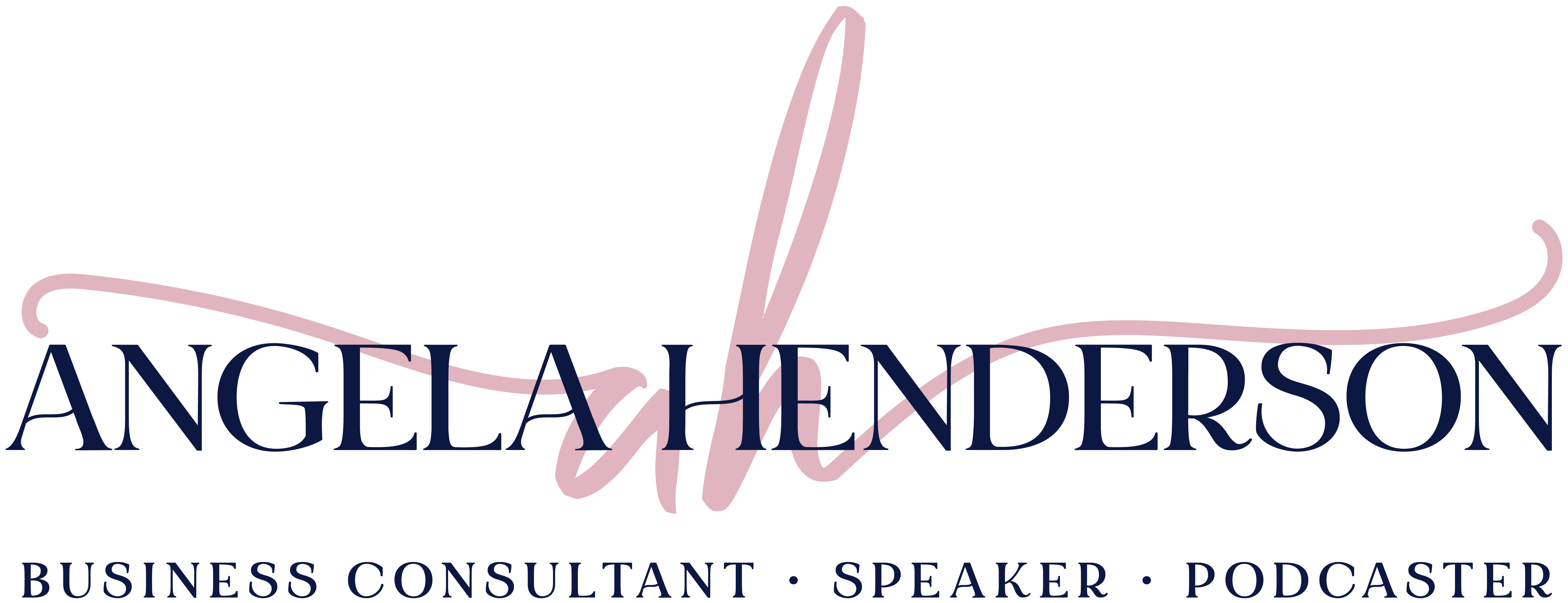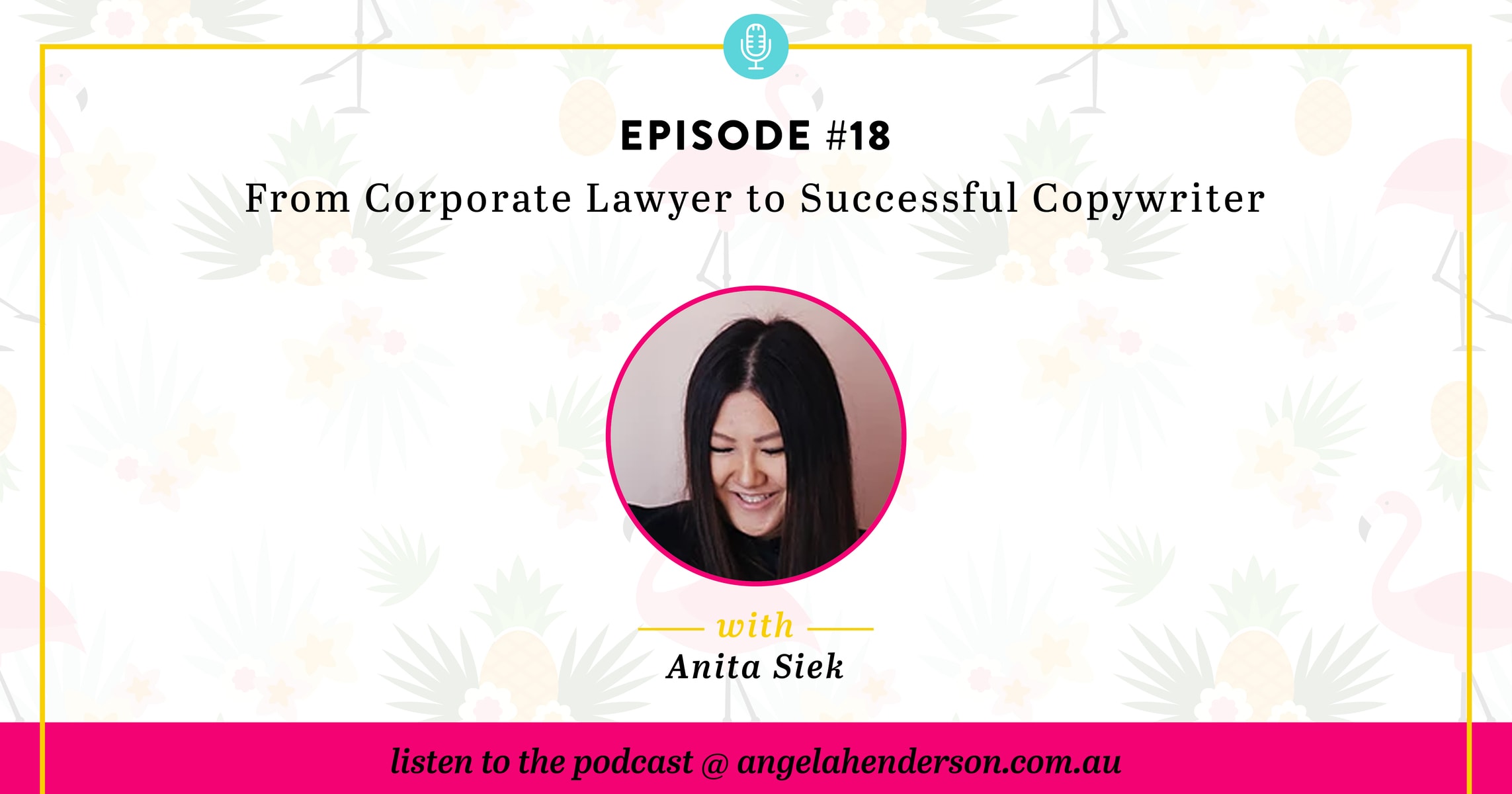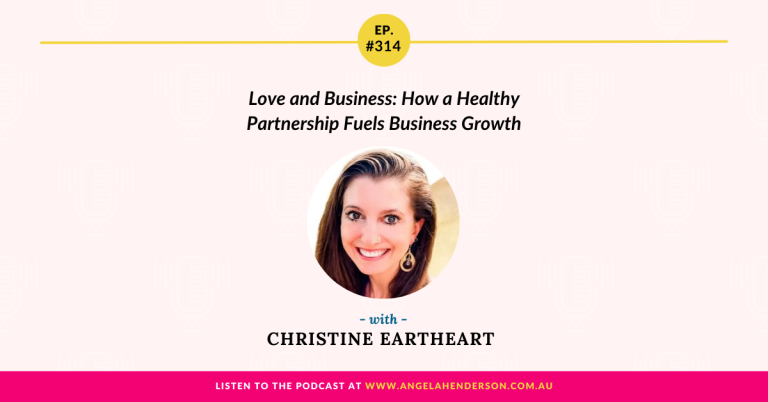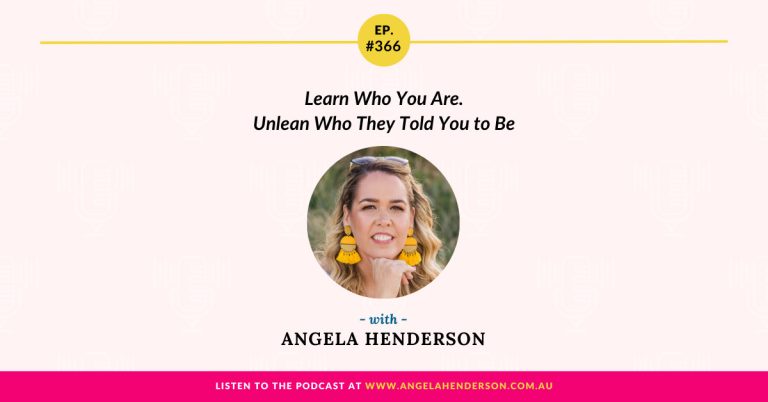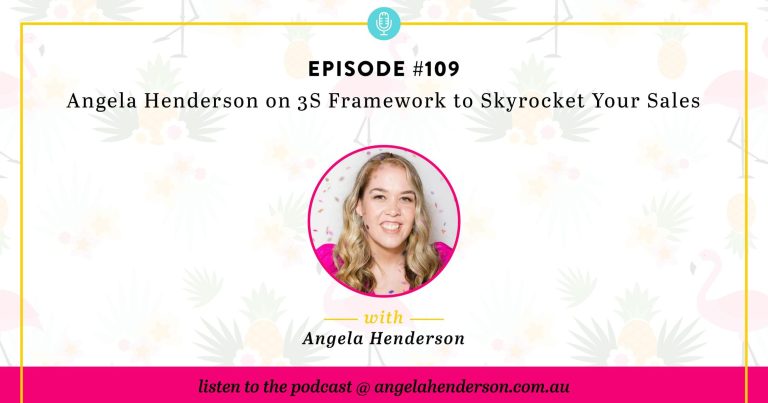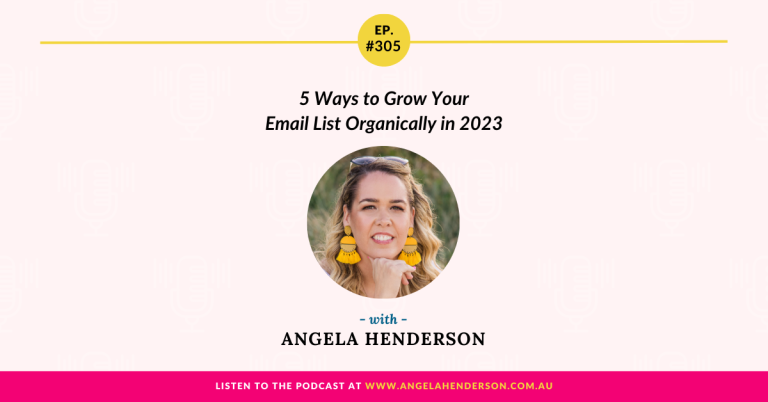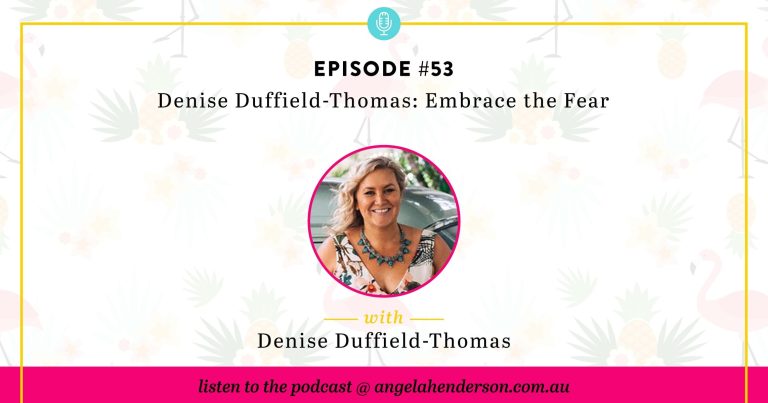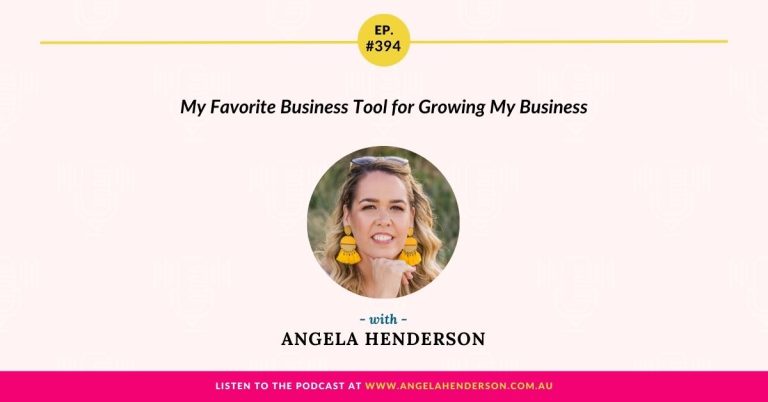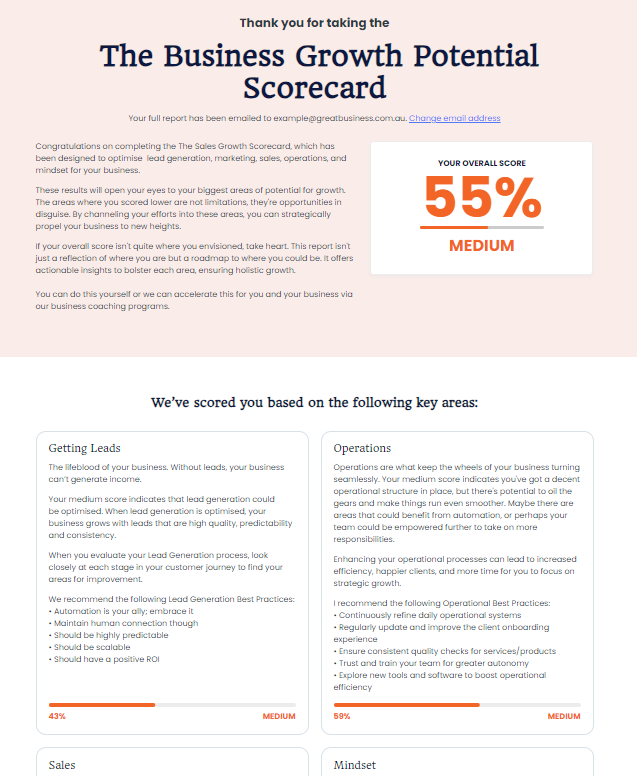Whether you are in a corporate job, handling both a business and a corporate job, or you just love a good conversation, you will love this episode with Anita from Wordfetti as we talk about her journey from being a corporate lawyer to a successful copywriter.
She shares the challenges she went through as an employee, including depression, and the turning point that made her take the leap to start her business, build her team and eventually triple her salary. She shares her story and gives us tips on how to achieve success in business and her one piece of advice to potentially start transitioning to being a business owner.
Important Links Mentioned in the Show:
Email hello@wordfettigroup.com
Angela Henderson Active Business Facebook Group
Angela Henderson Facebook Business Page
Prefer to read From Corporate Lawyer to Successful Copywriter? Here’s the transcript:
ANGELA:
You’re listening to the Business and Life Conversations podcast, with Angela Henderson, episode 18.
Hey there, you’re listening to the Business and Life Conversations podcast, my name is Angela Henderson, and on this show, we talk about improving your business, life or both. By having amazing and rich conversations with brilliant guests. Who will inspire you and who will give you tips and tricks, to help you grow both in life and in business.
Hey there amazing business owners, Angela here and welcome to another episode of business and life conversations with Angela Henderson, that’s me. I hope your day is going brilliantly well and that you’re ready to listen to another amazing episode. For those that are listening and are still in your corporate jobs, you’re going to love this episode. For those of us like myself who was in a full-time corporate world while starting a business, you too are equally going to love this episode. And for those of you that just love a good conversation too, will also love this episode.
Why? Because I have Anita from Wordfetti joining me today, she’s going to talk about how she went from a corporate lawyer to a successful copyright business owner. Her journey to success starts with bullying, depression, cultural obstacles and so much more. But now that she’s made it through the other side leaving her corporate job, she is so now opened up to so many wonderful opportunities that she’s going to share with us today. So, sit back and enjoy this beautiful conversation with Anita and I. Welcome to the show Anita.
ANITA:
Hello, thank you so much for having me.
ANGELA:
Dude thank you so much for being here, it is a Friday so we’re all very eager for the weekend. So, thank you for taking time out I appreciate that. Now listen before we jump into the nitty gritties about leaving corporate world and heading into this wonderful world of owning your own business and getting to be a very successful copywriter which is super fun because you’re very clever with words, I have stalked you slightly. But yeah so which is very cool. I want you to introduce a little about who you are, what you’re doing. We won’t talk about your journey yet. I just want to give the audience a little bit of a taster, but yeah like you said, who you are, where you’re currently at and the job that you’re doing? And I also want you to tell us what your favourite colour of jelly bean is.
ANITA:
Oh, that is. Okay. So, my name is Anita and I’m the founder and director of Wordfetti. We are a copywriting studio that specialises in helping brands stand out through words. Our ethos is that we don’t believe in traditional copywriting, but instead we believe in disruptive, thought provoking and engaging copywriting. So we write words that stick, words that get people feeling something and words that get discussions happening. Your final question is what colour of jelly bean, I would have to say black.
ANGELA:
Black jelly beans they’re so good, but so far between you don’t get a lot of black jelly beans in the bowls these days..
ANITA:
No, you don’t no.
ANGELA:
I do like that, is it Terry White chemists, I think they have like that, you can actually buy the packets of the black jelly beans.
ANITA:
Oh yes. And it’s always near the counter and you’re just like, oh, jelly beans.
ANGELA:
Absolutely. And then I normally make myself so sick because I’ll break open my packet and then I never want to see a black jelly bean again. But I’m with the black jelly beans are amazing and..
ANITA:
Also a sucker for licorice.
ANGELA:
Dude, so get messy. But this is a funny thing, not a fan of licorice. I can’t do black licorice but I do the black jelly bean. I don’t know what it is. Very interesting.
ANITA:
You’re a widow.
ANGELA:
That too, that could be, I could absolutely be a widow. I would support your thoughts on that one. So now. Okay. So enough about the black jelly beans because I could talk about food all day. I want to talk to you though because again, someone who has left my own corporate job, someone who would also say corporate jobs can be like mini cults in some ways. They tell you when to eat, they tell you when to brush your teeth. They tell you when you’re taking leave or when they’re denying your leave. As we’ve talked about. There are some benefits about corporate world that we do miss as business owners as we were saying before the show, such as when you’re sick. My kids have been sick for the last seven days consecutively and I’m kinda like, okay, it would be great to have a sick day because you can take a sick day and everything’s okay.
ANITA:
100%. And that was like me last week too where I was like, “Oh, my God I just need a day or two off, let me call the boss, oh wait I am the boss.”
ANGELA:
Exactly right. We don’t have that option.
ANITA:
No.
ANGELA:
However, I think you and I would both agree that leaving the corporate world has been one of the best things that has happened to us.
ANITA:
Definitely.
ANGELA:
But before we jump into how you’re now into the wonderful world of copywriting. I’d love you to walk us through your journey of what corporate life was as a full-time lawyer. I know you’re still a lawyer, however you’re not acting in the role of the corporate lawyer at the moment. You’re acting in your own business world, but technically you are still a lawyer. But tell us a little bit about the journey because it was quite interesting reading the application for the podcast because you talked about there was some bullying, the depression. And I really love the rawness that you we’re able to talk about in that application? I would love for you to be able to share that with the listeners.
ANITA:
Yeah, and I think, I was a lawyer, I did work in a law firm, but just too be clear with the listeners. I went from being a lawyer, so I worked in law firms but then I also worked in a role where I wasn’t technically practicing as a lawyer as well. Okay, so as you can tell, I have had a really stupid nonlinear path to copywriting. I’ll take you back a little bit in terms of I guess my path to doing the law thing and then I guess what happened in the corporate world for me.
ANGELA:
Sure.
ANITA:
Back in University I studied a law and social psychology degree. It took me six and a half years.
ANGELA:
Yes. A long time.
ANITA:
A long time for two very expensive pieces of paper, and then I decide to get another expensive piece of paper to get admitted as a lawyer and then I decide to get a corporate role. So I just as you would. I’ve worked in law firms when I was studying as well and I felt like it wasn’t exactly. I don’t know it wasn’t exactly what I just loved. I enjoyed the work but I just didn’t love it, so I decided to go get another role, I guess still in the corporate world, somewhat still in the same arena, but yeah, so I guess I was utilising my law degree in a different way. And to be honest if it wasn’t for a series of events that happened in my life, including what I’ll go through it in a bit, particularly in the last couple of months in my corporate world, I actually think I would still be there.
But yeah, because I actually, in a way, like I mentioned, I’ve actually quite enjoyed the role I was in. It was interesting. It felt rewarding, but what really flipped things for me was something that technically happened three or four months prior to me leaving the corporate role. So, I left the corporate role in December 2017. Sorry, around seven, eight. Yeah, eight months ago. And I don’t want to go too raw into. Well, I’ll go a little bit, but I don’t want to go too into the nitty gritties because I don’t want to dwell on the past, but..
ANGELA:
Totally.
ANITA:
It does play for me to summarise what I was going through. It was the idea that it was the culture that I was in. It was so much about scarcity thinking rather than I guess this idea of abundance thinking and it’s this attitude of competition, not collaboration, tearing people down, not bringing them with you and supporting them and championing them, resenting the competition instead of welcoming it. And it was like a sudden realisation that it wasn’t just like mental strength or having the resilience. It was inappropriate, the type of behaviour that I saw not just at me but at the people around me. It didn’t feel right.
And once you see the ugliness to that or to someone, as much as you want to open your arms and help them and look after the people around you, you can’t, you start to lose hope. And for me I felt so down. Like for me it really got me down to the stage where I was like, I just didn’t feel like this was right anymore. And it just didn’t align with what I believe a workplace should be either. And usually..
ANGELA:
And you also say that at one stage you’re not too sure if you were fully depressed, but you thought if this is what depression is like, is that correct in saying that?
ANITA:
Yes. A hundred percent. And I was just about to dive into that. I’m usually someone who is pretty bubbly. I think I’m usually someone who is enthusiastic. I love talking to people, getting to know their journeys, their stories. I’m a people person, you could say.
ANGELA:
Yes.
ANITA:
And not much can get me down. I’m usually someone who always tries to see the good in people. I’m usually someone who will probably laugh at something just so I can feel, it’s going to be ok, going to be okay. Like I’ll probably make a little bit of a joke out of something that’s secretly, inherently in my head. I’m like, “Oh, this is killing me.” But I’ll laugh about it. But I got to the stage where I couldn’t even do that, like for a good two or three months I would come home from work and my partner and people around me even, my mum, my friends like it’s a ripple effect. People start seeing it go into your personal life as well.
They would be like, “Ah, you’re just, are you okay, you seem so down?” I’d get text messages from friends and colleagues being like, “Are you okay?” They would send me flowers to work. Even being like, “Hey, here’s something to cheer you up.” It was obvious and in my head, I was like, I thought I was okay. But the fact that people were doing things like that for me, I was like, “Okay, so clearly I’m not okay,” I would be crying for no reason. I would get to the stage where it comes to Friday. I’m like, oh my God, I can finally breathe. I can finally have a weekend and just relax for two days. And that’s just not me, I’m one of those reasons that do get excited about work, they become in a way a second family because you spend so much time there.
ANGELA:
Yes.
ANITA:
I was just getting so down and for the first time, I think in my life I almost wanted to cocoon into my bed and be like, “I don’t want to”..
ANGELA:
Yeah, likewise. But too hard right now.
ANITA:
Not today.
ANGELA:
So how did you know, like what was the turning point? What was that kind of ‘Ah ha’ moment that would say, “Man, it’s time to get out. I’m done.”?
ANITA:
Yeah, pretty much as I mentioned, I’m usually someone who bit lose like, I’m one of those people who would say I love my job. I love what I do, whether it’s in the corporate world or what I do now, I want to, it stays true, like I want to be in a role that I enjoy because we spend so much of our lives in the workplace. We spend more time at work than we do sometimes with our friends, our family. I don’t have kids, but I have two dogs, so why should it feel like a chore? Why should it feel so negative and why should we feel so terrible?
So, when I found myself just feeling so down and upset about being in an environment that I had, I guess enjoyed so much. And that sad feeling actually went for longer than like two or three months and I would come home and just cry and I felt actually sick about being in that environment. That in a way was my trigger point. Like some people may say things like, “Hey, you need to build resilience, Anita,” well to that I say there is a difference between having resilience and knowing that it’s no longer worth the emotional rollercoaster.
ANGELA:
But I also think it’s not just about resilience because anyone can build resilience. But when you’re in, like, you made a very good point. The majority of us spend a third of our life in a role, a third of our life with our family or doing extracurricular activities and a third of our life sleeping. So 33.3% of our life is in the work, some form of workplace technically. Right? And I do think that resilience is one thing, but I think when you’re in a toxic environment for 33% of your overall week, day in and day out for five out of seven days a week, technically, resilience. I don’t think it’s kind of like that one step forward, two steps back. You can be resilient, but then when you get in there and you’re hit with boom, boom, boom, boom, boom, you’re like, you can only stay positive for so long because that toxicity, do you know what I mean?
ANITA:
100%. Exactly. You hit the nail on the head and that’s exactly it. It’s no longer about having resilience. It’s no longer, it’s borderline. Just it’s, yeah, it’s not worth it, it trickles down into your personal life, into even not being able to sleep and everything, your health.
ANGELA:
So like you said, those days were getting longer, you were crying more, you’d prefer to sleep more, you were breathing a sigh of relief at the end of the week. So that was kind of your turning point when you’re like, alright man, I don’t want to lay in bed anymore, I don’t want to feel this way anymore.
ANITA:
Yeah.
ANGELA:
So did you leave the full time job and then just like, go, I’m going to go out on a whim. Or did you slowly back away from the full-time job and start your side business while still working?
ANITA:
Yeah, so I actually started Wordfetti when I was still in the corporate role and this was something I had actually been quite transparent with my managers and directors about. I wanted to be clear on that and I actually side gigged. I don’t love the word side gigged but I side gigged for almost nine months, with the potential of it maybe one day being my full time job, maybe, I don’t know in a few years it was just something I really enjoyed and it was something also that I guess a lot of people started being like, “Oh Anita, you’re so good with cover letters, can you give me some feedback on this?” Or you’re good with words, can you help me with a bit about my website. And it was something I really enjoyed doing. So I was like, well this can be my side hobby/side hustle. So yeah, to think that, I definitely didn’t plan for it to go full time as quick as it did. I think the series of events that happened before I left my corporate role definitely drove me to diving into that path a lot quicker.
ANGELA:
Yes.
ANITA:
But yeah.
ANGELA:
Okay. Perfect. So then tell me a little bit to another interesting little fact that you had told me prior to the recording today was that you’re also part Chinese. And so in addition to some of those barriers, I guess about leaving the full time corporate job, you also had some home life barriers, kind of going, oh, am I going to make this because it’s not highly looked upon what you were saying from a cultural point just to just up and leave..
ANITA:
Yes.
ANGELA:
I guess, a stable job and go out in the unknown. Can you talk a little bit about what that looks like?
ANITA:
Yeah. So I’m technically three quarters Chinese and then I’ve also got Indonesian in me as well. So yeah, and it’s still hard to answer your question actually, but I think my mum is starting to understand a little bit more. At the beginning when I jumped from corporate world to having my own thing, I told her I was on leave, but that leave obviously kept going. And she was like, “Hang on, what is this?”
ANGELA:
Yes.
ANITA:
But yeah, going back a bit, I grew up in an environment where it’s the Asian culture, I guess. Where life was really about getting amazing grades, having some great skills and hobbies, I did the whole piano thing when I was three years old and I played the piano until I was 18 or 19. Did I love it? Not really, but it made my parents happy.
ANGELA:
Yeah.
ANITA:
And then the career path was like, do you want to be a doctor or do you want to be a lawyer? And I couldn’t get into being a doctor, so I went off to become a lawyer. But it was like that. It was about having a successful career and, in a way,, it wasn’t so much about just being successful either though it was also so that we could provide for the parents..
ANGELA:
Right. Because I would say isn’t it that what you would ideally, in China for example, mainland China, you would take care of your elderly later on in life, correct? And that you would help provide regular income or help with housing? Is that right?
ANITA:
Yep. That’s it. So my parents were, well, I was personally in born in Hong Kong and it’s a very similar culture, whether it’s mainland China, whether it’s Hong Kong or Taiwan or even Indonesia even, it’s this Asian culture where because our parents have looked after us for the last, I don’t know 20 or so years, great, put us in a good school and looked after us and gave us food and put a roof over our heads. It is in a way a chance for us to kind of look after them now that we are able to, we’ve got a full-time job and we’ve got income now it’s time for us to give back kind of thing.
And it’s something that I actually still feel that I should do. And I guess that was in a way the hard bit for me because it was to kind of throw away that security blanket and stray away from the traditional path I was supposed to go on. Yeah, it’s not something that’s traditional or normal. And my dad is someone who was actually very, very adamant that, “Anita, you need to do the university degree. You need to get a corporate job.” It was something that he really wanted to and for me personally that was, always at the back of my mind because my dad is someone who, I definitely respect my mum too, but both my parents really wanted me to just have this life that they worked so hard for for me and being an only child as well. I didn’t want to let them down. Yeah, it was..
ANGELA:
But would you say now that you, do you know what I mean that things are getting better, numbers are getting better. Are they slowly coming around to this I guess change because it’s not just the change with family, but it’s like a cultural change? I’m assuming that they might have pressures from their friends or societal pressure on them, which is an indirect thing from your decision, you know? So, are they slowly coming around to the idea that the corporate lawyer is now turned successful copywriter?
ANITA:
Somewhat so far. I mean in a way it sounds so much better to say you’re a doctor or lawyer than to say, “Hey, I’ve got a business”. People automatically look at you as though you’re going through a midlife crisis.
ANGELA:
Alright yeah.
ANITA:
Oh No. So, it wasn’t, for me personally it was somewhat two-fold like I guess, yeah, going back with my dad being someone who is so career driven and all of that. So a little bit of a side note. I actually personally lost my dad a couple of years ago and maybe that would have contributed to everything that happened. But I guess a part of me is almost like I don’t want to let him down. I don’t know whether I should leave the corporate role because this is something he would have always wanted me to do. But on the flip side, at the end of the day, it’s not so much about the career. It’s mainly, they just want me to live a good life I think like whole reason why they want me to have a good career is so that they don’t want me to stress out not having that money or not being able to do what I want at the end of the day. It’s really about that.
ANGELA:
And I think again a parent’s love is always they want the best for us. Don’t they?
ANITA:
Yeah. But I get that. I’d be worried about me too.
ANGELA:
An interesting thing that you had said, which I thought was cool and I don’t know if it started or you’ve thought about this after corporate life> But you talked about not settling for mediocre and that people need to get comfortable with uncomfortable. I’d like to unpack what that means because I think it’s a great combination of words and you obviously being a copywriter is good with words. So, tell me a little bit about why people need get me to get out of comfortable and start to be uncomfortable?
ANITA:
I actually read, I’m reading a book at the moment that actually summarises that perfectly. So it’s called ‘The Big Magic’. I don’t know whether you read it..
ANGELA:
Yes.
ANITA:
Yeah you read it?
ANGELA:
Yes.
ANITA:
And she’s got this quote at the very beginning of the book where it says ‘it’s about living life driven by curiosity as opposed to fear’. And I feel like too often we settle for okay, or just this is all right or this will do because we feel like we have to, this is what we’re meant to spend our life doing. Whether it’s the bills, it’s the stability, it’s a job we feel comfortable in because we worked in that for, I don’t know, five, 10, 20, 30 years, like our tribe is there, sure of course you have responsibilities, but why should that be an excuse to living a life that you’re not excited about?
I know this has been said so many times, but damn, life is short. And I think for me personally, that cannot ring more true because, yeah, having lost my dad quite in a way suddenly. In a way that was a bit of a watermelon to my head. It’s like things can turn very quickly. And we’re only on this earth, I guess for certain number of years. And it’s just simply not worth it when three quarters of your life in a way you spent feeling like that, you wake up, go to work, pay the bills, you dread Mondays, count down to the weekend and you do it all over again. There’s no fun in that. And for me personally, I feel like we shouldn’t be living a life that drains us. And we should be getting excited about Mondays.
A lot of people might be like, “You probably don’t have big responsibilities Anita,” or something like that. “You don’t understand because we’ve got bills to pay and this and that. I’ve got kids and all that.” Well, in a way I know everyone’s personal circumstances are different, but I had bills. I had a mortgage as well. Actually. In fact, I decided to buy a house before I left my corporate role literally like a month before I decided to leave. Some may think I’m crazy, but you know what, that absolutely gave me the ammunition to make sure I absolutely smash this life with Wordfetti and gave it my all. And going back to all of this. Sometimes being uncomfortable and I felt uncomfortable, I was scared of being uncomfortable. And just stepping outside your comfort zone is sometimes where all the magic happens. And for the first maybe two, three months when I left the corporate role, I was scared. I was like, “I’m not sure.” Obviously I worked out my expenses, minimum expenses I need to make, but did I know how I was going to make that? No, not really, but I pushed myself to figure it out. Like..
ANGELA:
I know mindset gets spoken about a lot, but when you’re determined to do something, I always, always see people who are determined and willing to work hard, do what they need to do.
ANITA:
Yeah.
ANGELA:
They might not have a killer month. They might not have their best profitable month, but they’re still happy and they’re still doing what they like and like you said, they’re not dreading Monday mornings. Like I was in Bali just a few weeks ago and I was able to tune off for about seven days. But then I’m like my ADHD brain, I’m like, “Ah, I gotta do, I gotta come back.” But the thing is I love what I do. So when I’m not doing it, I feel like a part of me is missing, it has nothing to do with. I even say like work life balance because I feel my life work life balance is pretty balanced.
I like what I do, so when I like what I do, I want to be around that energy and you know, I meet good people, so many people through the podcast now and see. So, I think there’s something to be said that sometimes there’s initial stages of uncomfortable and going, “holy crap”. I mean like what’s going to happen here? The fear of the unknown I think is another big one. The fear of letting go of control.
ANITA:
Yes.
ANGELA:
I always, always see so many positives that come from that. Speaking of positives, one of the things that you’ve done since leaving your corporate job is you’ve almost tripled your corporate salary and you’ve also been able to bring on a small team. So walk some of the listeners through, what have you done? What have been the key things you’ve done since leaving your corporate job? To be able to triple your corporate salary almost and to have to build that team?
ANITA:
I would probably say it’s a combination of things, but probably three key things. This first thing is really because I had built Wordfetti when I was still in the corporate role, I felt like I had, when I first started the brand itself. It was crickets in a way for three, four months. I was like, Yay, WhatsApp, Yay Instagram yay Facebook, I’m live I’ve got an account. Like it definitely doesn’t work like that. You can have a website, you can have all the cool images, even all the cool copy, but you need to be so damn consistent with the content that you convey to people. You need to provide so much value and really enter into the industry being like not sell, sell, sell, but really help. And for me personally, yeah it was crickets for a good three, four months but that didn’t stop me from consistently every day showing up on Instagram or Facebook or throwing my hand in where I could to help people when people had questions coming back to me on Instagram. I went in to really deliver consistent value. And I think that would be one key thing that has really helped me to really build the brand.
The second thing I would probably say is to really surround yourself with very similar to what you mentioned before, Angela, surround yourself with like-minded people. Those who dream big, those who are positive and those who don’t play small. This has been actually massive for me. They say this is like the saying that’s always been thrown around. You’re the average of five people that you hang out with the most. It doesn’t ring more true because these five people can either fill you or drain you completely. If you’re around people who constantly complain and they’re negative and think life is just against them, they’re just going ‘mmh mmh mmh’, you just can’t help but start thinking like that too. But when you start, I guess surrounding yourself with people who just think big, they’re positive and they’ve just got this energy and they’re genuinely kindhearted and optimistic as well. That starts becoming your normal, it doesn’t seem big anymore.
And yeah that would be the second thing. I would definitely say has been amazing just surrounding myself with people who are smarter than me, people who are just driven, people who are just gone down and then come back up three times, times three, it’s been amazing. And the third bit is actually, I would actually recommend, I’m not too sure whether this is somewhat, some people might disagree, but I would actually invest in a business coach.
ANGELA:
I couldn’t, as a business consultant. I couldn’t agree more.
ANITA:
Yes.
ANGELA:
Yeah. Tell us your side because I can talk about that till the cows come home. So why do you think investing in someone solid is a good game plan?
ANITA:
Yeah. And I think that that would be my third. And that is important mainly because for me personally, I had no idea what I was doing in the business world and I’m going to be completely honest. Like I had the idea, I knew I had the passion, but that might be enough in the corporate world, but guess what, that’s not enough. When you start your own business, being good at what you do is not enough. And I love my friends, but not many of them have started their own business. So it wasn’t like I could be like, like call them and be like, “Oh, what should I do when this happens? Like, should I register for this? Should I do this?” And I felt lost. I was very, not sure in the whole business world.
But the reason why I’m saying people should invest in a business coach is because as having someone who has been there and done that, and someone who can guide you. It’s priceless. Because as a business owner, you really go through an emotional rollercoaster. There’s this meme that goes around that’s like the life of an entrepreneur or business owner. It’s like..
ANGELA:
Yeah, it’s like an up and down rollercoaster.
ANITA:
Yeah and sometimes you’re like, yes I’ve got this, I’ve got the awesomest idea ever. But sometimes you’re like, oh my God, who am I kidding? Maybe I should go get a job again. And sometimes you just can’t wait it. Or sometimes you are awake at 2:00 AM. You’re like, is this normal should I like, is this normal? And having a business coach and having someone who can centre me back in, put me on the right path, and also push you to doing things that you normally wouldn’t do. Or you’d be like, oh, that will take me five years or that’ll take me three years. But someone who is like, “You know what, you can do this. We just need to do this, this, this, and break it down and do it like this”. That has been, yeah. Just someone who believes in you. That’s been amazing.
ANGELA:
And I think so much of it is the majority of businesses that I work with too, is that they actually know what they need to do. They’re not giving themselves credit like they actually know, “I need to do better marketing. I need to do this, I need to do this”. But it’s like you said, it’s breaking them down into actionable digestible steps.
ANITA:
Yes.
ANGELA:
And I think the accountability is massive because…
ANITA:
Yes.
ANGELA:
If you don’t have to do, like you can just let things keep sliding and sliding and sliding. But knowing that you’re meeting with your coach every two weeks or every four weeks, you’re like, man, I gotta get this done. Like I can’t miss a session because she doesn’t allow me to miss a session because it’s part of the contract. So, I’ll be paying for this, so there is an element of like, holy crap, I’ve got to get onto this, and each have their own. Every person will do it like either last minute, but they’ll still get it done.
So, I do think there’s something about having that accountability because when there’s accountability there’s action taking, and when there’s action taking your business will perpetuate and move forward.
ANITA:
Definitely.
ANGELA:
It’s like a combination, it’s all. I couldn’t agree with you more on that.
ANITA:
Yeah. And that has been massive. I’m not someone who procrastinates, but in my head I’m like, “Ah, you know, maybe that, let’s be realistic here. Let’s try and achieve that maybe in five years,” but really having someone as an eagle eye look down and be like, “Anita” or whoever the business coach is working with, “these can actually be achieved in a year or two if we do this, this this, this,” they are able to have that laser sharp vision and be like, because you’re so in your business you sometimes you start doubting yourself, you start just not sure..
ANGELA:
They can’t see things for what they worth..
ANITA:
That’s it, you can’t, no. You saw just not things. So yeah, having someone who has that eagle eye approach. And Angela, I know you’re amazing at this as well, to really be like, “This is totally achievable. We just need to break it down”.
ANGELA:
There’s a cheerleader and also talk about putting things. I believe I learned this Tash Corbin at our conference last year about putting things back into toy box and so many people as we’ve like. If you look when you have kids, especially when they’re little, they’ll pull like 100 toys out of the toy box, right? You’re like dang it, put them back. But obviously they don’t because they’re babies, but it’s like asking for ideas, Ooh, another idea, ooh, another idea, ooh, another name. So often I’ll say to my clients, “They’re great ideas and they will be part of your overall strategy as we’ve talked about, but I need you to put those ideas back in the toy box and focus on our three actionable steps or five actionable steps”. Whatever we’re working on because if not people start something and don’t finish it, and therefore again, it is actually progressing or regressing, I should, mixture of words, regressing versus helping you where you need to go.
ANITA:
It’s almost like, yeah, you can do it all, just not all at once.
ANGELA:
Exactly. Right. Even though we might think we’ll be able to. No we can’t.
ANITA:
Yeah.
ANGELA:
So for those people still in the corporate full-time jobs listening, what is the one piece of advice, just one that you’d give them to start thinking about potentially transitioning?
ANITA:
I would get them to ask a question to themselves and that would be do you, and honestly really think about this like, do you see yourself happy feeling challenged and inspired in that corporate role that you’re in the next five years? And if you do, maybe you should stay there because you feel like powered by it. But if you don’t then maybe ask yourself why and consider as well why you want to be in business. Is it because of the lifestyle? Is it because you truly love what you do?
Because in a way sure you get to work at cafes and in a way, you get to have a more flexible lifestyle. But it’s also hard so…
ANGELA:
Absolutely. Like there are some days it just like lonely. You’re just like, “Yay, I get to look at my computer again”. And that’s again, besides the fact that missing out on the sick days that we could take at our old jobs. But also I miss the lunchtime lunches where some of my funniest, funniest people. Like I was just speaking to my friend Gary last night and my friend Glen, and my friend Peter, like you would just belly laugh, you know? And even though I still have that in my life, I miss the daily dose of belly laughs, like we would just laugh and laugh and laugh. And so I do miss the community essence you could say..
ANITA:
Definitely.
ANGELA:
And that part of it.
ANITA:
Definitely. And that is a big thing as well if I say yeah, being a business owner is sometimes very, very lonely. And that’s why it’s so damn important to have like a bit of a community tribe, just business friends or even who just have the same values as you do to really go through this business journey together.
ANGELA:
One hundred percent. So now listen, I love it because I relate to so much of what you said today and I know there are so many people that are still sitting on the fence or even still working part-time in their corporate roles. So awesome episode. But if the listeners would love to know more about you and find out like exactly what you do or how you could help their business. Where can they find you?
ANITA:
So, you can find us on Instagram. It’s the @wordfetti, which is spelled W-O-R-D-F-E-T-T-I. Our website is www.wordfettigroup.com or you could definitely shoot me an email as well, I’m definitely happy for anyone who is ion that transition phase or unsure, or really just wants someone to talk to or just wants to say hi. We can be pen pals, you can shoot me an email on hello@wordfettigroup.com .
ANGELA:
Yay, dude. Thank you so much for taking the time on a Friday to hang out with me, talking about..
ANITA:
So much fun.
ANGELA:
.. everything in between, transitioning of being in the corporate world to the transition and I’m so, I love hearing these stories because again, it confirms why we got out of the corporate world.
ANITA:
Yes.
ANGELA:
We’re following our passion and I know it’s cliché but we’re doing it, things are good and life’s alright. So thank you for sharing that with us today, Anita.
Now my team and I will also be putting together the whole transcription for this episode at www.angelahenderson.com.au and of course, I cover all sorts of business related and life topics inside my Facebook group, The Australian Business Collaborative with over three thousand businesses. So, make sure you join the community, as I’d love to see you in there.
But for the rest of you, no matter where you are in the world, have an awesome day and I look forward to you to tuning into the next episode where we’re going to be talking about business systems 101, getting you up to date with why you need business systems in order to grow your business successfully. Have an awesome day everyone, and I look forward to catching up with you soon.
This is Ange from Angela Henderson Consulting, bye.
Thanks for listening to the Business and Life Conversations podcast with Angela Henderson, From Corporate Lawyer to Successful Copywriter. www.angelahenderson.com.au.
